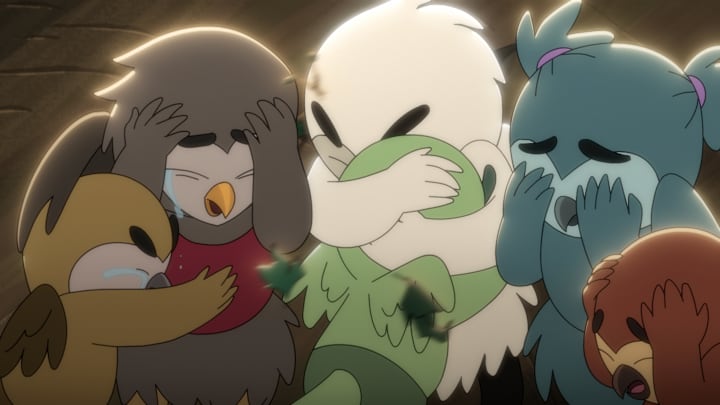Star Trek: Lower Decks met a similar fate to many of its contemporaries; canceled too soon in the eyes of many. In the eyes of others, however, it was around far too long. Lower Decks joins Discovery and Prodigy as shows that were canceled at some point in production on their final season. A fourth show, Picard was a show that had plans and ideas for a fourth season and a follow-up film, but Paramount+ rejected the notion and ended the show at the originally planned third season.
As of right now, the only show that is in development that we know isn't getting canceled and is something we can expect to see soon on Paramount+ is Star Trek: Strange New Worlds. Prodigy will have a second season on Netflix sometime soon, but for the most part, Strange New Worlds is the last show on Paramount+ standing, and it may remain that way for some time.
We know that Paramount+ isn't afraid to cancel a show in production, so anyone thinking that the proposed new show Star Trek: Starfleet Academy is a sure thing isn't paying attention. Cancelations can happen to anyone at any time.
Yet, of all the shows, few deserved to be canceled more than Lower Decks. Lower Decks, like Discovery, was not a show that catered to everyone. It was a Rick and Morty clone that had a Star Trek seal of approval slapped on it. It was crude, abrasive, shallow, and failed to continue on the Star Trek sincerity that we've all come to appreciate. It was the show that had the biggest tonal shift from Gene Roddenberry's original creation and was the one show that actively spat in the face of what Star Trek was meant to be.
It didn't take itself seriously, and that was the problem. While humor exists in Star Trek, it exists in a way to add color to characters, not in a way to undercut everything the franchise was built on.
While it had its fans, it wasn't for the storylines, but mostly for the callbacks and references to better Star Trek that garnered the most praise. Returning characters, actors, and actresses, as well as iconic locations were the things that brought fans in. Not necessarily the starring characters, but the promise of nostalgia. It became a nostalgia trap, a show that desperately needed better ideas from 30 years ago to keep what viewership they had on their product.
It was not a show that ever produced a storyline that, on its own, could carry the interest of the fandom. It was more about the surprises and the shocks. These are great, the first time through, but after the adrenaline wains, you're left with just the content and the content was never that funny to many, nor was it ever captivating enough to make it a hit among the masses.
It was meant for the small intersection of fans who are both Star Trek and Rick and Morty fans and considering it was canceled as season five was being finished, it's fair to say that the cross-section of that Venn diagram wasn't exactly big. Yet, some will call it the best show that Star Trek had/has, and that's just not true.
A show that caters to a specific subset of fandom can't be great. Especially one that radically challenges every idea and notion that the core concept of the show was based on. A great show unifies people through fantastic plots and deep characters. Not split the fandom by being entirely different and at times unnecessary.
If the outcome of these cancelations is that shows like Strange New Worlds get more focus, more episodes, and more opportunities to restore Star Trek to what it was once, and what it should always be - a melodrama that tackles sophisticated dilemmas with no clear answer - then we will all benefit from it.
It's clear the experimentation era of Star Trek is over, and it was an utter disaster. Hopefully, we won't have to deal with any more shows that take us away from what Star Trek is, because, at the end of the day, Star Trek can't be anything. It has to be Star Trek. When you mess with the formula, you lose the point of the series in the first place.
